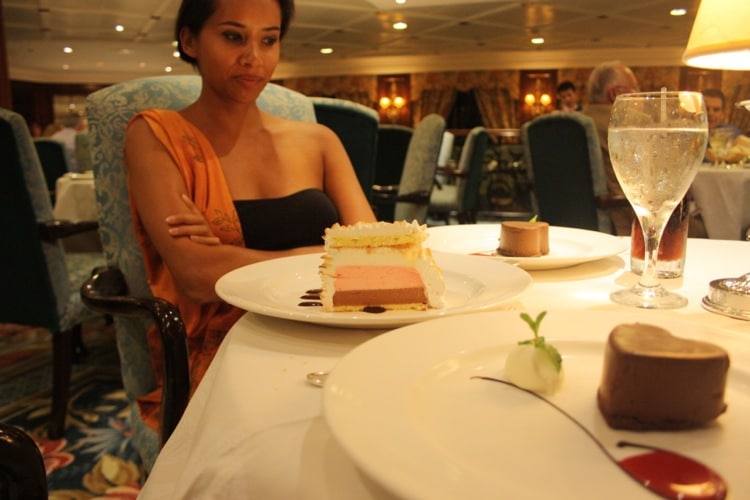It was on a hike across Isla Del Sol in Bolivia a few years ago that I first wondered how many animals walk for pleasure – not to hunt or feed, not to find shelter or warmth, but to enjoy the act of walking itself.
I asked the question on Quora to rather unsatisfying results. The question arose again on our recent Abel Tasman hike and led me to wonder what other characteristics are unique or largely restricted to humans.
This in turn led me to an old issue of New Scientist magazine and a fascinating set of articles on the six things all humans do. Some are obvious, some are amusing. All trigger a flush of recognition and a sense of belonging.
1. Being playful
You may have heard the fact that humans and dolphins are the only species that mate for pleasure. This, perhaps unsurprisingly, is not true. Several other animals have sex where reproduction is impossible or unlikely. What’s interesting is that few other species are as generally playful as humans.
All mammals play, says New Scientist, but no other species pursues such a wide variety of entertainment or spends so much time enjoying themselves.
We enjoy not only physical activities (sports, games, dancing and even tickling) but we also play with language (making jokes, creating music) and use our imaginations. We carry our childhood sense of playfulness right into adulthood, rare among other species.
2. Being scientific
As children, we learn to identify patterns. We might identify and group all the red Lego bricks together, or recognise that a two-piece brick slots above another two-piece brick. We find ourselves constantly sorting the world into categories, predicting how things work and testing our predictions.
This, says New Scientist, is the very essence of science and is evident in everything from the establishment of time and calendars to our use of measuring units and our pursuit of cosmic knowledge.
3. Being legislative
Many animals adhere to simple behavioral rules (often around territory and hierarchy), but none have a sophisticated system of rules, taboos and etiquette like that of humans.
Without studying every community in the world, we can’t say for certain whether each and every one has formal laws but humans, by nature, tend to have rules. These rules always involve governing behaviour in three key areas, a sign that legislating is fundamental to human nature.
First is kinship: the rights, goods and status one is entitled to and also the obligation one has to their kin (e.g. a daughter inheriting land from her mother, or a father legally obligated to provide for his son).
Second is safety: everyone worries about safety so every culture has rules that govern when someone can kill or hurt another person.
Third is the use of objects: the definition of ‘private property’ is far from universal but societies everywhere have rules that govern who can and cannot use certain things at certain times.
4. Being epicurean
To most animals, a meal is just a meal: a way to sustain their bodies so they can continue living. To humans, a meal can be a labour of love, a work of art, a vehicle for seduction, an event in and of itself. Friends gather to break bread while families share stories and squabbles over the dinner table.
Of course, it’s not just our attitude towards food that sets us apart. Cooking, one of humanity’s greatest inventions, has made a huge difference.
Primatologist Richard Wrangham at Harvard University says that cooked food, which offers more calories and less chewing, was the key innovation that allowed our ancestors to evolve into smart, social creatures.
He notes that chimps spend more than six hours a day chewing; humans, less than one which leaves more time for culture and development.
5. Being clandestine about sex
It was visiting the breeding centre on San Cristóbal in the Galápagos that changed my mind about tortoises. Until then, I saw them as wise and gentle creatures, slowly and carefully plodding through life. After the visit, they morphed into huge, horny creatures that had loud, grunting, unattractive sex in public.
Of course, that makes them no different to any other creature except humans who prefer to have sex in private. One might say this is due to centuries of social conditioning, but academics suggest a deeper reason. Secret mating happens among species with a lot of inter-male competition, says Clive Wynne, a professor of psychology at the University of Florida.
Donald Symons, anthropologist and author of The Evolution of Human Sexuality, says that men regard sex as a precious commodity and therefore enjoy it “covertly to avoid inciting covetousness”.
Harvard professor Steven Pinker agrees: “This is for the same reason that during a famine anyone with food is likely to consume it in private.”
In short, it’s not shame that drives clandestine copulation, but envy and competition instead.
6. Being gossipy
There is a rather unkind comment a female columnist once made about British actress Keira Knightley: “If you want to befriend a woman, ask her the question, ‘What do you think of Keira Knightley?’ In the resulting torrent of bile and loathing, you will bond.”
It’s true: humans use gossip to cement relationships, says Robin Dunbar, author of Grooming, Gossip and the Evolution of Language. He believes that gossip is the human equivalent of primate grooming.
We have too many relationships to maintain through time-consuming grooming so we engage in chat instead: “Gossip evolved for oiling the wheels of social interaction,” says Dunbar – a maxim that applies to everyone from schoolchildren to the most powerful leaders of the world.
What’s interesting is that gossip isn’t negative by nature. In his research, Dunbar found that negative comments were far less common than innocuous observations about a subject. In essence, it’s not that we like to bitch; it’s just that we like to talk. Unless of course it’s about Keira Knightley.














